Table of Contents
When attacking a countertop installation project, it might be easy to get discouraged by the cost, particularly if you’re looking to upgrade to natural or engineered stone. While a small-to-moderately sized kitchen or bathroom won’t entirely wreak havoc on your budget, the cost of labor could push you past the brink of what’s affordable.
No matter what, if you’re deciding to replace the old and dated laminate with natural stone or more modern options like solid surface, there will be labor costs tied into the fabrication side of those materials. Now if you’re goal is to pinch pennies, you might decide to do the install yourself, but the question is: should you install your new countertops?
[get_quote]
DIY is Dependent on Countertop Material
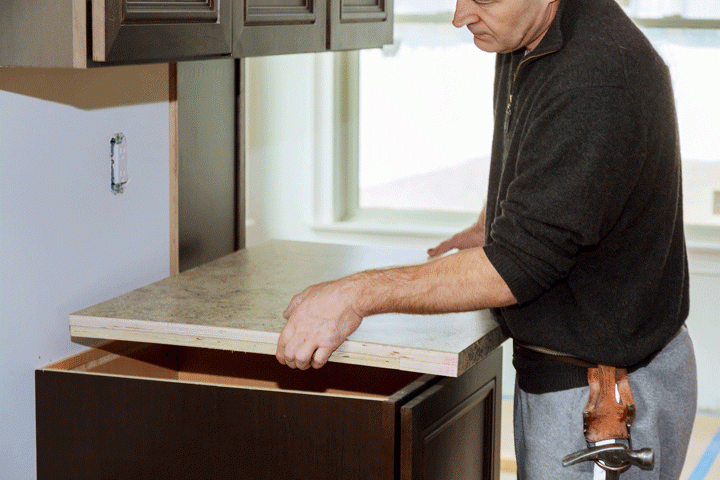
If you’re upgrading laminate surfaces or adding solid surface countertops to your home, these are certainly well within the skillset of most people. As long as you have general home improvement tools (drill, saw, etc.) you can most likely install laminate or solid surface countertops on your own.
Now if you’re going the natural stone route, the odds of you being able to successfully install stone countertops are slim. That is unless you’re a body builder, because natural stone is heavy, and more often than not, the precut slabs for your counters can not be safely handled by one person.
Sure, a buddy or two will help overcome that issue, but installing natural or engineered stone countertops is a bit more involved than laminate or solid surface, especially if you have to hide seams. Not only that, but the tools required for the installation of natural stone countertops are specialized tools and if you lack the experience, it might be worth it to just pony up the extra cash for the labor costs. After all, if installed and maintained properly, stone countertops will most likely outlast the homeowner who had them installed.
Cost-Benefit Analysis of Self-Installing Countertops
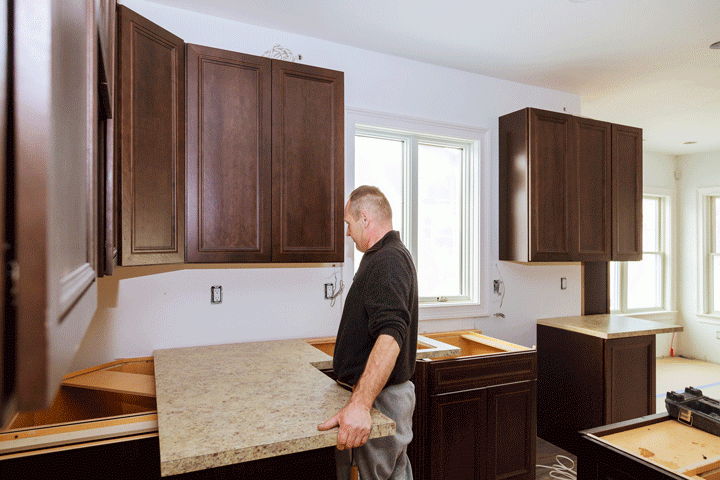
The best option one could take when weighing whether to go full DIY in regards to countertop installation is to run a basic cost-benefit analysis of the project. If it’s possible (read: if the fabricator is willing), get a breakdown of material costs, fabrication costs, and install costs in the quote from whatever stone provider you’re using.
Ideally, get that itemized cost breakdown from a few different stone providers in your region, and then see if cutting out the installation costs is worth the overall risk of a DIY countertop install. Look at it a few ways: your skillset and experience, warranty parameters, and liability if the install gets messed up.
[get_quote]
Obviously, if you mess up the materials or generally just botch the install, you’re liable and you have no other recourse other than personal shame and disappointment. Additionally, it is quite unlikely any stone provider would offer any kind of warranty on materials a homeowner decided to install themselves. So while the cost savings and personal pride might be key motivators, the safest option is letting professionals carry out the install because if it goes wrong or a mistake is made, you’ll not only be covered under some kind of warranty but any contractor worth the money will feel a duty to correct their mistakes free of charge.
In the end, there are some countertop materials that are more forgiving and easier to DIY, but what you save in labor costs you certainly won’t make up for in terms of peace of mind. Countertop warranties and liability on the contractor instead of yourself are big positives that outweigh the benefit of self-installation. So could you install your new countertops? Sure, but unless you’ve spent your career doing such work, spare yourself short and long term aggravation and let a professional handle your new countertop installation.













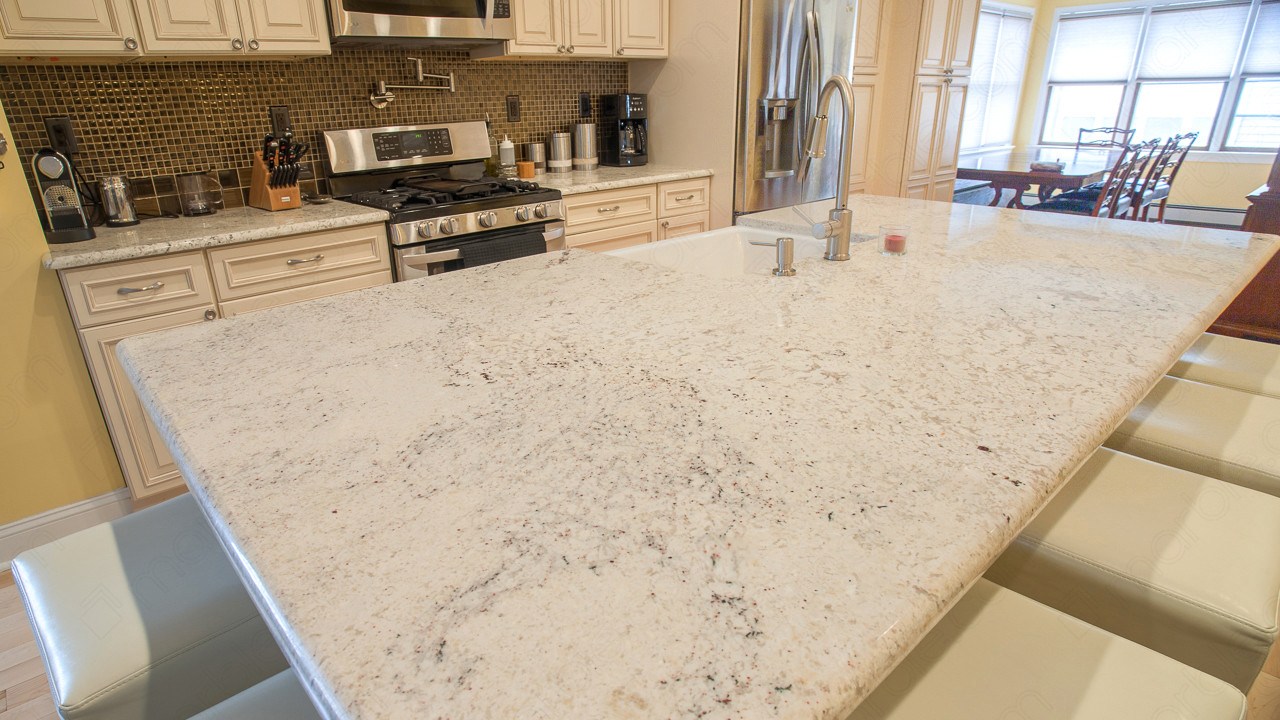
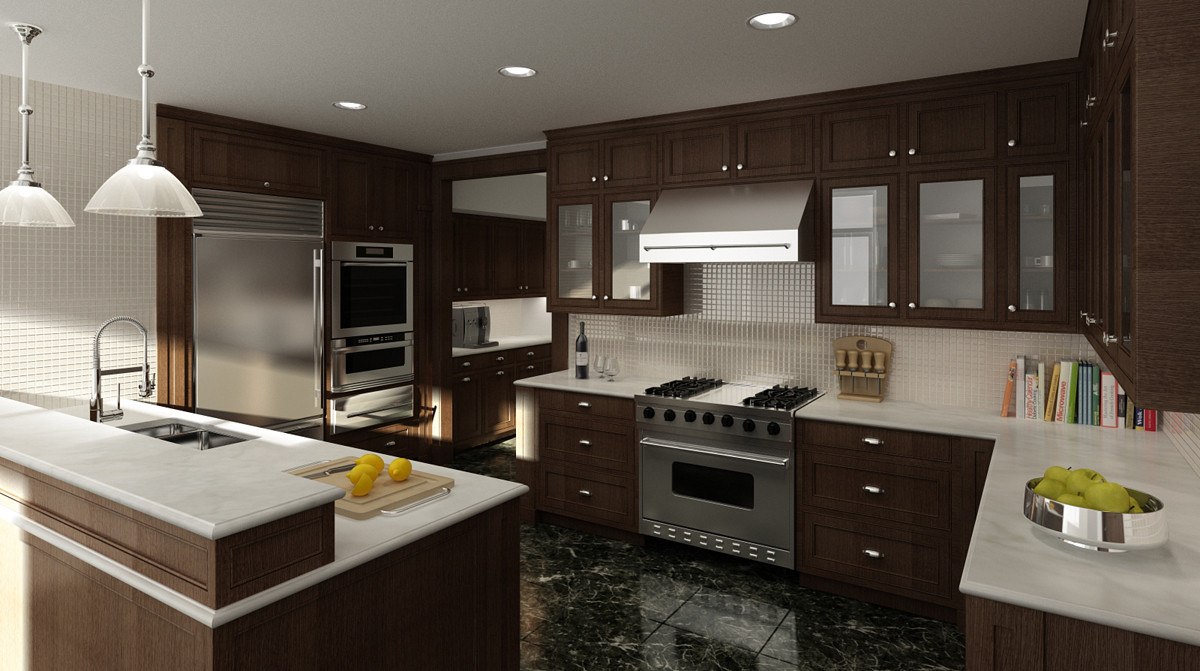
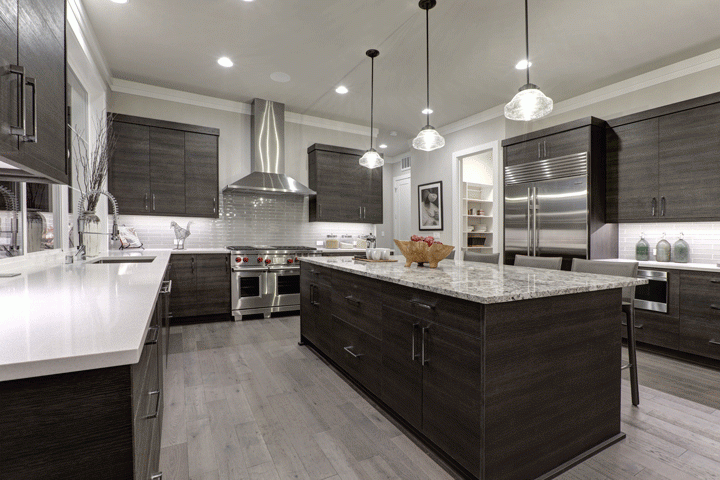
 The article helped me immensely
The article helped me immensely
 I’m now more informed on the subject
I’m now more informed on the subject
 I have questions about Marble.com
I have questions about Marble.com
 The article was not accurate at all
The article was not accurate at all
 There is a serious lack of information
There is a serious lack of information
 I have questions about Marble.com
I have questions about Marble.com